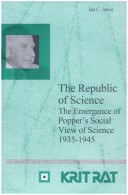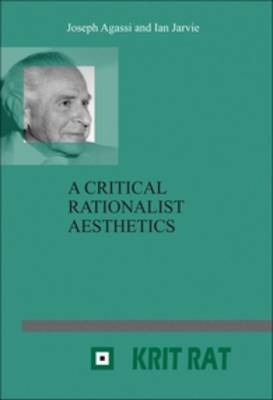Schriftenreihe zur Philosophie Karl R. Poppers und des Kritischen Rationalismus / Series in the Philosophy of Karl R. Popper and Critical Rationalism
3 primary works
Book 5
Both a Popper biography and an autobiography, Agassi's A Philosopher's Apprentice tells the riveting story of his intellectual formation in 1950s London, a young brilliant philosopher struggling with an intellectual giant - father, mentor, and rival, all at the same time. His subsequent rebellion and declaration of independence leads to a painful break, never to be completely healed. No other writer has Agassi's psychological insight into Popper, and no other book captures like this one the intellectual excitement around the Popper circle in the 1950s and the struggles of the 1960s and 1970s - personal, academic, political, all important philosophically. Agassi's Popper - whether one agrees with it or not - is an enormous contribution to scholarship. This second revised edition includes also Popper's and Agassi's last correspondence and, in a postscript it shows Agassi leafing through Popper's archives, reaching a sort of reconciliation, an appropriate ending to the drama. A must read. Malachi Hacohen, Duke University
Book 15
This book offers a careful re-reading of Popper's classic falsificationist demarcation of science, stressing its institutional aspects. Popper's social thinking about science, individuals, institutions, and rationality is tracked through The Poverty of Historicism and The Open Society and Its Enemies as he criticises and improves his earlier work. New links are established between the works of the 1935-1945 period, revealing them as a source for criticism of the institutions and governance of science.
Book 18
This book is a first attempt to cover the whole area of aesthetics from the point of view of critical rationalism. It takes up and expands upon the more narrowly focused work of E. H. Gombrich, Sheldon Richmond, and Raphael Sassower and Louis Ciccotello. The authors integrate the arts into the scientific world view and acknowledge that there is an aesthetic aspect to anything whatsoever. They pay close attention to the social situatedness of the arts. Their aesthetics treats art as emerging from craft in the form of luxurious and playful challenge to the audience. In developing it they place emphasis on the number of questions and claims that can be settled by appeal to empirical facts; on the historical character of aesthetic judgements; and on the connection of aesthetic truth to true love and true friendship, i.e. fidelity and integrity, not to informative truth.


